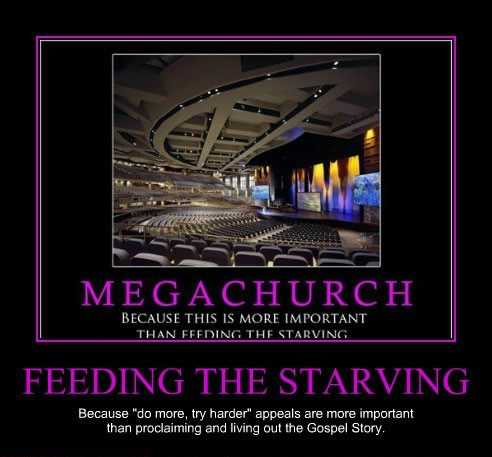Label Me The Anti-Christ or Give Me A Grilled Chessus!
 I remember it well, my first novel had just been published and reviews were starting to appear on various blog posts and retail sites. To my delight the posts were almost unanimously positive. The comments were packed with kids and adults alike sharing how much they enjoyed the book and were challenged by it’s message. Many of them couldn’t wait for the second installment to be released. It was time to for my brother and I celebrate.
I remember it well, my first novel had just been published and reviews were starting to appear on various blog posts and retail sites. To my delight the posts were almost unanimously positive. The comments were packed with kids and adults alike sharing how much they enjoyed the book and were challenged by it’s message. Many of them couldn’t wait for the second installment to be released. It was time to for my brother and I celebrate.
Then it came. Our first negative review, and boy was it a “beaut”.
Looking back, I wish I had saved a copy for nostalgia’s sake, but alas the internet has since gobbled it up and the review has seemingly vanished from public records. I don’t remember all of it, but it went something like this:
“I pursued the first few chapters of this horrid piece of worldly deception, a work the authors dare to claim to be Christian fiction,” it began, “but there is nothing Christian here. I was appalled at the lack of spiritual integrity and moral depravity the authors celebrate in the actions of the main character.” The reviewer went on to question our integrity, our faith and ultimately (I think) our humanity as he concluded with the following zinger, “Parents beware, this is no simple Christian fable, it is an Abomination of Desecration designed to lead your children into the snares of the Anti-Christ.”
Oh yes, he went there. The Anti-Christ…we were writing for the Anti-Christ.
My heart stopped. I was shocked. Wow! Talk about an over-reaction. I had never met the Anti-Christ before and was certain that if I had I would probably remember him, right? Then again there was that one guy outside Safeway the other day, I thought to myself. I remember he had nodded his head at me in a silent acknowledgement of something. You don’t think he was…nah…he couldn’t be.
We laugh, but I don’t blame the reviewer for over-reacting. I blame him for basing his entire judgement of my book on his apparent “perusal of the first few chapters” and I still to this day wonder if he even read the right book, but that is another story. The point is, he wouldn’t classify my book as “Christian Fiction”, and you know what? I’m not sure I would either.
This may come as a shock to some of you but there is no mention of Christ in my novels (or God for that matter). Nobody prays a “sinner’s prayer” and the altar call is a dim reflection of anything Billy Graham would be proud of. Oh…there is a church in our book, but I’m not exactly sure why because the doors are locked and the kids seeking refuge in it are chased into the graveyard by creepy bug-like monsters and end up falling into a grave.
See!? Clearly this is the work of Satan.
As a Christian who writes fiction, I often wrestle with the implications of my work. I long for it to matter – to have the readers of my words be drawn to the greater truth of God’s Word. I wrestle with it because even though I want desperately for my work to matter, I find it difficult to marry fiction and truth together. After all, what does a lie, a myth, a fictional STORY have to do with the solid rock of God’s truth?
Maybe more than you think.
There are those pesky parables in the Bible. You know the ones, the stories told by Christ himself (who was God incarnite, remember). Stories about seeds and thorns and birds and storms and rich men and sons who chase after wine, women and squander their fortunes only to find themselves eating with pigs. Those parables, so richly woven and deeply imagined made no mention of God or the salvation message either. In fact, many of them were so cryptic that Jesus’ own disciples had to be instructed later as to what he meant by them (even then they didn’t understand it).
The point is this: if the God of the universe is okay with wrapping truth so deeply inside a work of fiction that his own best friends can’t figure out what he means, shouldn’t we be okay with stories by believers that are misunderstood as well?
Now, I’m aware there is a slippery slope in all of this as well. It’s what keeps me up at night as I write – praying desperately that my own words aren’t misused and misinterpreted to lead some away from the Lord.  I want my stories to be used by God but I’m not sure that putting my books in a “Christian” label is going to help them do that. Why? Because the “Christian” label is so awfully abused that sometimes I wonder if it has any meaning at all anymore. Honestly, does slapping the word “His Way” on a “Subway” logo make my t-shirt more holy? Or how about the “Grilled Cheesus” sandwich maker they were selling at the Christian Retail Show this past summer? Is that a better example of a “Christian” product because it puts Jesus’ face on my grilled cheese sandwich?
When I see stuff like this is make me sad. Is Christ pleased with us putting his label on everything, like its a brand name to be sold?
Now I’m not propagating a world in which no labels exist. I’m an “anti-emergent, calvinistic, reformed, Bible-believing, Spirit-filled, balding monogamous heterosexual, Jesus-loving author” if you want to throw a few sticky notes on me. Our minds are designed to categorize. It’s part of our defense mechanisms. It’s a good thing. We must be discerning in what we read, watch and promote lest we end up serving in a church that is no more “Christian” than the Sunday Assembly in London where Atheists meet to do the “church thing without the God bit”.
In the end, it is God who must work through my stories and I’m fine with that. I know the elements of truth that I present stack up to the Word nicely. Our diligence in writing the tales we tell are designed to ask the deeper questions that will ultimately draw those whom God is seeking closer to himself. I’m okay with guys like that reviewer “missing the point” and I’m okay with some people just enjoying my story as a good story.
The point is, I can’t change anyone’s heart, but I’m not ashamed of Christ and I certainly don’t work for the Anti-Christ yet.







































 For example, letâs take a brief look at one popular franchise of stories, in this case stories specifically geared for child readers: the Diary of a Wimpy Kid series. My wife, children, and I have enjoyed these books (and film adaptations) about âwimpy kidâ Greg Heffley, whose comical struggles are endearing to anyone who has endured the horror of middle school.
For example, letâs take a brief look at one popular franchise of stories, in this case stories specifically geared for child readers: the Diary of a Wimpy Kid series. My wife, children, and I have enjoyed these books (and film adaptations) about âwimpy kidâ Greg Heffley, whose comical struggles are endearing to anyone who has endured the horror of middle school.

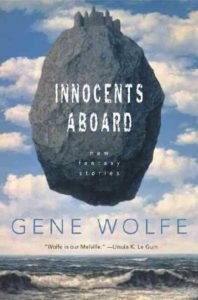



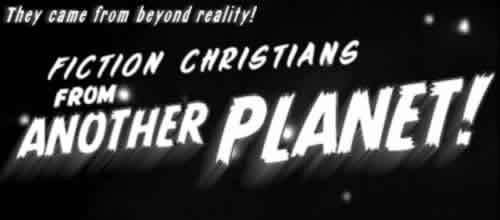
 Like most straw men, this one is easy to dismantle. So I need not do that here. But if itâs this easy for Christian readers to recognize non-Christian caricatures â along with the corny Disney-Santa-Clause-movie-style âapologeticsâ used against them â how do you think actual nonbelievers think? Do they recognize people who resemble themselves? Will they like this kind of story? Do they feel respected even by Christian authors who show disagreement?
Like most straw men, this one is easy to dismantle. So I need not do that here. But if itâs this easy for Christian readers to recognize non-Christian caricatures â along with the corny Disney-Santa-Clause-movie-style âapologeticsâ used against them â how do you think actual nonbelievers think? Do they recognize people who resemble themselves? Will they like this kind of story? Do they feel respected even by Christian authors who show disagreement? Thanks in part to popular materials from
Thanks in part to popular materials from 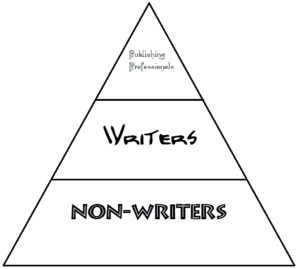 Recently Left Behind mastermind Jerry B. Jenkins
Recently Left Behind mastermind Jerry B. Jenkins 








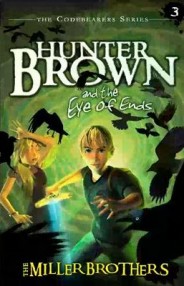
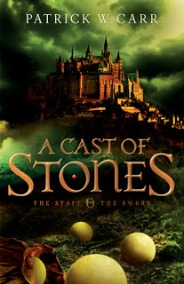




 Bland Hero arrives and GAZES with GRITTY DETERMINATION at a LITTLE BROWN CHURCH. Then a FLASHY SPONSORED SPORTS CAR arrives. Its door opens to reveal an ABSURDLY SEXPOT FEMALE CO-STAR.
Bland Hero arrives and GAZES with GRITTY DETERMINATION at a LITTLE BROWN CHURCH. Then a FLASHY SPONSORED SPORTS CAR arrives. Its door opens to reveal an ABSURDLY SEXPOT FEMALE CO-STAR.